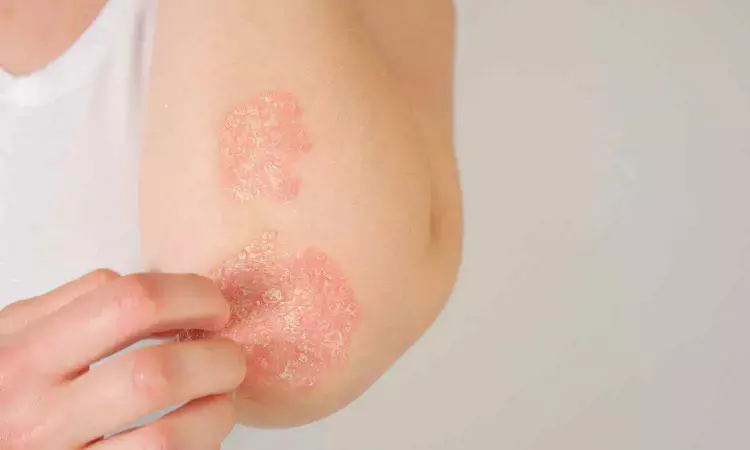- Home
- Medical news & Guidelines
- Anesthesiology
- Cardiology and CTVS
- Critical Care
- Dentistry
- Dermatology
- Diabetes and Endocrinology
- ENT
- Gastroenterology
- Medicine
- Nephrology
- Neurology
- Obstretics-Gynaecology
- Oncology
- Ophthalmology
- Orthopaedics
- Pediatrics-Neonatology
- Psychiatry
- Pulmonology
- Radiology
- Surgery
- Urology
- Laboratory Medicine
- Diet
- Nursing
- Paramedical
- Physiotherapy
- Health news
- Fact Check
- Bone Health Fact Check
- Brain Health Fact Check
- Cancer Related Fact Check
- Child Care Fact Check
- Dental and oral health fact check
- Diabetes and metabolic health fact check
- Diet and Nutrition Fact Check
- Eye and ENT Care Fact Check
- Fitness fact check
- Gut health fact check
- Heart health fact check
- Kidney health fact check
- Medical education fact check
- Men's health fact check
- Respiratory fact check
- Skin and hair care fact check
- Vaccine and Immunization fact check
- Women's health fact check
- AYUSH
- State News
- Andaman and Nicobar Islands
- Andhra Pradesh
- Arunachal Pradesh
- Assam
- Bihar
- Chandigarh
- Chattisgarh
- Dadra and Nagar Haveli
- Daman and Diu
- Delhi
- Goa
- Gujarat
- Haryana
- Himachal Pradesh
- Jammu & Kashmir
- Jharkhand
- Karnataka
- Kerala
- Ladakh
- Lakshadweep
- Madhya Pradesh
- Maharashtra
- Manipur
- Meghalaya
- Mizoram
- Nagaland
- Odisha
- Puducherry
- Punjab
- Rajasthan
- Sikkim
- Tamil Nadu
- Telangana
- Tripura
- Uttar Pradesh
- Uttrakhand
- West Bengal
- Medical Education
- Industry
Poor Heart-Kidney-Metabolic Health and Genetics May Double Psoriasis Risk, Study Finds

China: A new large-scale study has found that declining cardiovascular-kidney-metabolic (CKM) health, combined with genetic susceptibility, is strongly linked to a higher risk of developing psoriasis and a shorter life expectancy for those affected by the condition. The study was led by Dr. Yuhong Zhao and colleagues from the Department of Clinical Epidemiology at Shengjing Hospital of China Medical University, and was recently published in the Journal of the European Academy of Dermatology and Venereology.
"Poor CKM health was linked to a higher risk of psoriasis in middle-aged and older adults, especially in those with high genetic risk, and also to shorter life expectancy in people with psoriasis," the researchers wrote.
Drawing on data from the UK Biobank, the researchers tracked 392,454 adults without psoriasis at the study's initiation. They assessed each participant's CKM health, which encompassed the presence of metabolic disorders, chronic kidney disease, and cardiovascular disease, classifying them into five progressive stages from 0 (healthy) to 4 (severely affected). Additionally, the team evaluated participants' inherited risk for psoriasis using a polygenic risk score, enabling them to examine how genetic and health-related factors might jointly influence disease development.
Based on the study, the researchers reported the following findings:
- As CKM stage increased, the risk of developing psoriasis also rose progressively.
- Individuals at CKM stage 1 had a 21% higher risk of psoriasis compared to those at stage 0.
- The risk continued to escalate with advancing CKM stages, reaching a 72% higher risk at stage 4.
- Participants with both advanced CKM syndrome and high genetic risk had nearly a three-fold increased risk of developing psoriasis compared to those with no CKM issues and low genetic risk (HR 2.82).
- There was a significant interaction between poor CKM health and genetic susceptibility, indicating that genetic factors may intensify the impact of CKM syndrome on psoriasis risk.
- Among those diagnosed with psoriasis, individuals in CKM stage 4 had a reduced life expectancy by approximately 2.03 years compared to those in CKM stage 0.
These findings provide new insights into the complex interplay between systemic health, genetic vulnerability, and dermatological disease. The researchers emphasized the need for early detection and management of CKM syndrome not only for cardiovascular and kidney health but also for its potential role in preventing or mitigating psoriasis.
The authors concluded, "The study adds to a growing body of evidence suggesting that psoriasis is more than a skin disease—it is closely tied to systemic health, particularly in midlife and older populations. Clinicians are encouraged to consider broader metabolic and genetic assessments in psoriasis risk evaluations and management strategies."
Reference:
Zheng, G., Zhang, Y., Su, H., Yang, H., Ma, Z., Li, L., Li, Y., Ji, C., Xia, Y., & Zhao, Y. Cardiovascular-kidney-metabolic health, genetic predisposition and incident risk of psoriasis. Journal of the European Academy of Dermatology and Venereology. https://doi.org/10.1111/jdv.20852
Dr Kamal Kant Kohli-MBBS, DTCD- a chest specialist with more than 30 years of practice and a flair for writing clinical articles, Dr Kamal Kant Kohli joined Medical Dialogues as a Chief Editor of Medical News. Besides writing articles, as an editor, he proofreads and verifies all the medical content published on Medical Dialogues including those coming from journals, studies,medical conferences,guidelines etc. Email: drkohli@medicaldialogues.in. Contact no. 011-43720751


